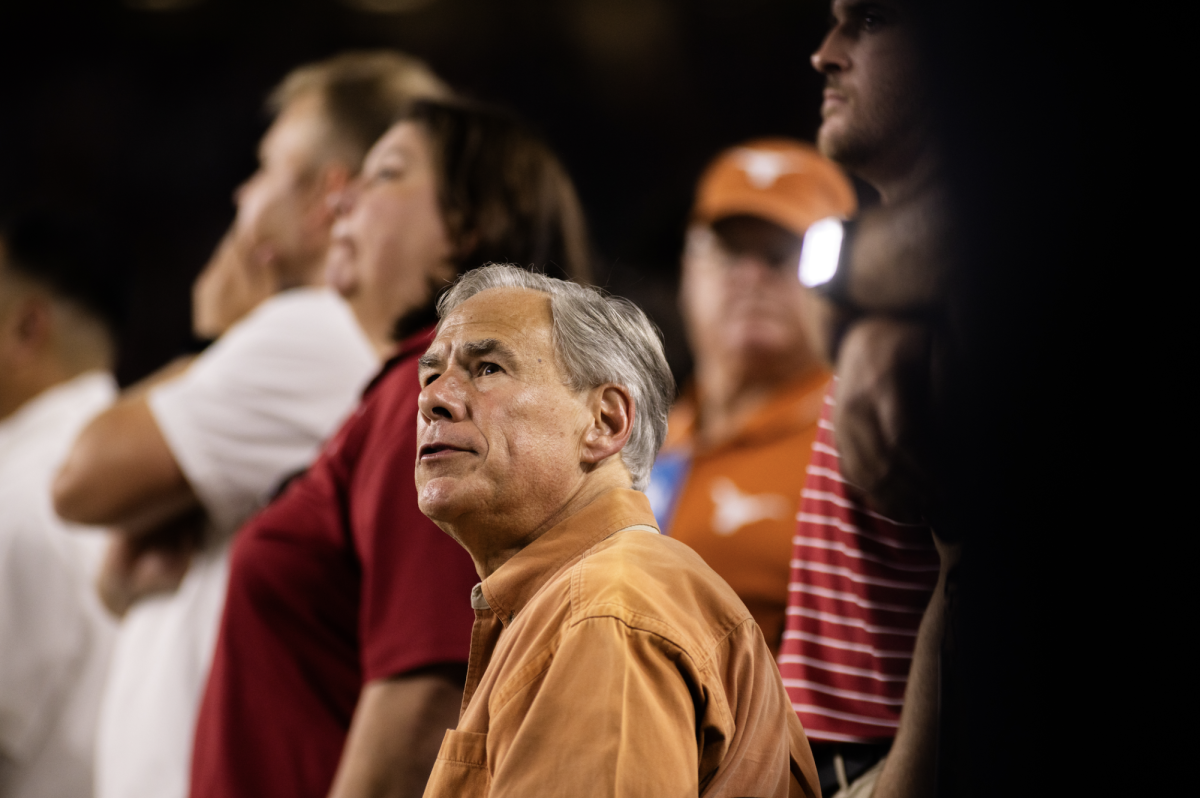Civil rights organizations and UT’s Palestine Solidarity Committee claimed that Gov. Greg Abbott’s executive order for state universities to update and enforce free speech policies is discriminatory and violates the First Amendment.
The order, issued Wednesday, requires universities to revisit their free speech policies and punish those who violate them. Abbott said an increase in antisemitism on college campuses prompted the order, which explicitly names the Palestine Solidarity Committee and Students for Justice in Palestine as potential violators.
“University administrators, we call on you to protect your student body and their constitutional rights,” said the student organizations in a joint Instagram statement Thursday. “This is not the first time, nor will it be the last, that Governor Abbott will request you to violate the rights of your students and faculty.”
The UT system stated it will “fully comply” with the Governor’s executive order.
“The University of Texas System is opposed to discrimination, bigotry and hatred in all forms — including antisemitism,” a UT System spokesperson said.
Prior to the order, the UT Systems Board of Regents followed the Chicago statement regarding free speech, which declares it to be improper for UT institutions to shield students from “unwelcome, disagreeable, or even deeply offensive” speech.
Amy Sanders, associate professor of journalism and media, said it’s clear Abbott is targeting hate speech, which is fully protected under the First Amendment with this order.
“The part of the order that struck me as so particularly troubling was his specific call to enforce this against Palestinian student groups,” said Sanders, a licensed attorney. “That, to me, suggests a particular animus that in some way in my mind makes this even worse than unconstitutional.”
PSC member Ammer Qaddumi said he and other student organizers believe the executive order is “fear-mongering,” and that Abbott issued the order to intimidate the pro-Palestine student movement.
“The University has demonstrated several times over the last six months that they do have some other priorities, some other consideration aside from their students when it comes to Palestine,” said economics junior Qaddumi. “Specifically, they do not come out and condemn harassment against their students.”
Caro Achar, American Civil Liberties Union engagement coordinator, said while hate speech is protected, universities make a distinction for speech that could be considered unlawful conduct, such as harassment, in their guidelines. She said the existing policies already require universities to protect their students, faculty and staff.
“Your First Amendment doesn’t give you the right to create a hostile environment,” Achar said. “It does give you the right to say something that your university administrator or your governor might not agree with.”
The Council on American-Islamic Relations also released a statement calling the order “anti-Palestinian” and “blatantly unconstitutional.”
It’s dangerous for the government to regulate what is considered protected speech, and this practice leads to discrimination based on an individual’s viewpoint, Achar said. She said there has also been an increase in anti-Muslim or anti-Arab hatred.
“Singling out groups and naming a specific chant, (advocating for Palestine) as grounds for discipline, based on political beliefs not only violates free speech rights, which is bad but also sets a really dangerous precedent for ideological discrimination on university campuses,” Achar said.















